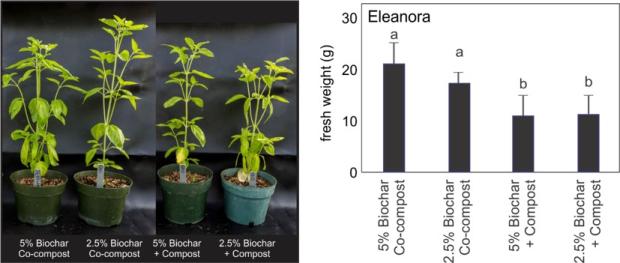Biochar has the potential to sequester carbon and improve the properties of soils when used as an agricultural amendment. However, biochar will only be a viable option for carbon sequestration if there are uses and viable markets for this biochar. In recent years, there has been interest in adding biochar to agricultural soils in conjunction with compost, and in some cases, “co-composting” biochar—putting the biochar in with the feedstock before the composting altogether. Read on to learn about a study led by Dr. David Gang, a professor at Washington State University’s Institute of Biological Chemistry, indicating that co-composting can provide additional benefits, both during the composting process and to the crops grown in soil amended with the resulting co-composted biochar.
The co-composted biochar used in this study was made using a set proportion of screened dairy manure solids and bedding straw, woody yard waste, and food scraps. Some of the compost piles also contained 2.5% or 5% (by volume) biochar. Even before adding the compost to the soil there were benefits: the addition of biochar to the feedstocks led to significant reductions in the volatile organic compounds measured during the composting process, which can make compost smell bad (Figure 1).
